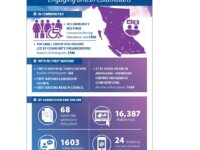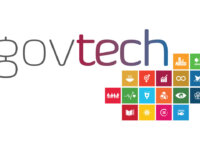The Collaborative Partnership to Improve Work Participation (the Collaborative Partnership) is a unique public-private sector alliance to drive fresh approaches to improving work participation for Australians with a temporary or permanent health condition or disability that impacts their ability to work. The Collaborative Partnership is responding to stagnating work participation rates in Australia following a work-related injury or illness and employment rates among people with disabilities.
Innovation Tag: Cross-Sector Partnerships
Case Study
Partnering for success: a regional monitoring system for social equity and inclusive development
A multistakeholder partnership created a regional indicators-based monitoring system to track pro-poor health policy change across the Southern African Development Community (SADC), a low-income region beset by socio-economic costs of a high disease burden. This stimulated SADC’s Result-Based Regional Monitoring and Evaluation initiative. Extending to all SADC priority areas, Results-Based Monitoring and Evaluation (RBME) enables real-time tracking of regional performance, documentation of…
GovTech is a Portuguese public competition that rewards innovative products and services provided by Startups and addressing at least one of the 17 Sustainable Development Goals (SDGs).
It intends to stimulate the national Startup ecosystem, by promoting a sustainable economic growth, fostering innovation and opening new economic opportunities based on the 2030 Agenda.
The use of blockchain in the voting phase opened to the public was one of the perks of this competition
Make.org est une plateforme européenne de mobilisation citoyenne autour d’actions de transformation de la société. Dans ce cadre, Make.org développe une solution digitale de consultation massive, totalement inédite, capable de faire participer autour d’une question simple d’intérêt général, plusieurs milliers de citoyens, dans plusieurs langues, et de restituer les résultats de cette consultation en ligne, de manière quasi instantanée. Cette solution est complétée des…
Case Study
Engaging People with Lived Experience of Poverty to Build and Implement British Columbia’s First…

In 2016, British Columbia (B.C.) had the second highest poverty rate in Canada but was the only province without a poverty reduction strategy. To inform its first strategy, a new government completed the most extensive poverty engagement to date in Canada, focusing on people with lived experience of poverty.
To address barriers, B.C. used a range of innovative engagement approaches including direct supports for participants, dedicated Indigenous engagement and funding grants to non-profits.
Canada has an obligation to protect and inform migrant workers of their rights while in Canada and to support employer compliance with the conditions of its Temporary Foreign Worker Program. To this end, it launched the Migrant Worker Support Network pilot initiative. The Network is a collaborative and migrant worker-informed platform for migrant workers, employers, governments, and civil society to develop and implement solutions to better protection and support of migrant workers in Canada.
Employment and Social Development Canada (ESDC) led the design and implementation of a national poverty reduction strategy public engagement process. We offered Canadians multiple ways to share their views, from public town hall events to online discussions, to a youth contest, to an in-depth research project. The engagement process successfully reached thousands of Canadians in a short time frame on a low budget. The plan is now used as a Government of Canada model for effective civic…
In June 2017 the Government created a Social Innovation and Social Finance Strategy Co-Creation Steering Group (SG) to provide recommendations for a Strategy. Based on a year-long process the SG developed 12 recommendations.
In response, the Government announced the Strategy’s foundational elements in November 2018 including a $50 million Investment and Readiness program to build the capacity of organization to access social finance and a $755 million repayable Social Finance Fund.
Case Study
Future Skills: Engaging governments and stakeholders to build a skills development ecosystem
Future Skills is part of the Government’s plan to build a resilient and confident workforce that reflects Canada rapidly evolving nature of work. It embraces user-centred design principles to inform the adoption of proven practices and evidence on skills development approaches, to ensure that Canada’s policies and programs are prepared to meet Canadians’ changing needs. It was designed in collaboration with provincial and territorial governments, and informed by a large range of…
With a citizen-centric approach and a strong focus on co-creation, SIMPLEX is a simplification and modernization program focused on improving public service efficiency and designed to facilitate the citizens and businesses everyday life, and their interaction with the public administration.
Launched in 2006, it had several editions since then and resulted in the implementation of hundreds of initiatives that cut red tape, reduced context costs and used ICT to deliver better public services.


